One way of determining how committed a media outlet is to accurate and impartial coverage of a particular topic is to examine its reporting over a period of time for recurrent omissions and the variety of viewpoints presented to the public.
In May of this year the BBC presented its radio audiences around the world with an entirely one-sided account of a long-running story that had made the news following a ruling by Israel’s Supreme Court:
BBC’S ‘NEWSDAY’ PROMOTES A ONE-SIDED PR NARRATIVE
In late August the BBC returned to the story of Masafer Yatta in multi-platform filmed and audio reports by the Jerusalem bureau’s Yolande Knell which once again promoted a one-sided account of the story with the help of inadequately presented political activists:
BBC JERUSALEM BUREAU ‘JOURNAVISM’ GOES TO MASAFER YATTA
On November 17th listeners to BBC Radio 4’s ‘From Our Own Correspondent’ heard an item (from 06:51 here) in which Knell used the recent Israeli election as an excuse to recycle the story. The programme’s synopsis reads: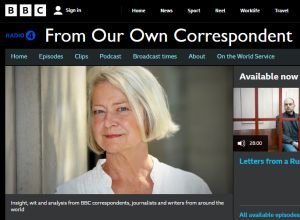
“There is unease among Palestinians living in the hamlets of Masafer Yatta in the occupied West Bank, as the new Israeli government takes shape. Its predicted that far right politicians, who have campaigned to strengthen Israel’s occupation of the West Bank, will be awarded positions in the new cabinet. Yolande Knell spoke to villagers there.”
In the introduction to the programme (which will remain available for over a year) given by presenter Kate Adie listeners were told that:
“Today we’re in the southern Hebron hills in the occupied West Bank where a thousand people are at risk of eviction from their homes.”
At 06:51 Adie introduced the item itself with a premature portrayal of a government which has yet to be formed and currently has no swearing-in date: [emphasis in italics in the original, emphasis in bold added]
Adie: “Palestinians living in flashpoint areas of the occupied West Bank are increasingly wary of the direction of Israel’s new government which will soon be sworn in. Two prospective new cabinet ministers from Israel’s far-Right want to expand Jewish settlements and ultimately annex the entire occupied West Bank. The new political mood has caused unease for people living in the hamlets of Masafer Yatta in the southern Hebron hills who back in May learned of a decision by the Israeli Supreme Court to recognise the legality of a military training zone around their homes. Yolande Knell has spoken to villagers there.”
Seeing as the Supreme Court decision was issued in response to a petition brought by residents of the area and a foreign funded political NGO, together with the involvement of a council supposedly representing those residents, the term “learned of a decision” is clearly not helpful to listeners.
Knell began her account with the views of a local resident who is no stranger to the foreign media.
Knell: “A flock of startled birds flies up as Mohammed Ayoub, a mustachioed Palestinian farmer, points at the rubble where his house once stood. It was demolished by an Israeli bulldozer in June. ‘Even the school here has a demolition order’ sighs Mohammed from Khirbet al Fakhiet, a hamlet in part of the occupied West Bank under full Israeli control. His family’s been staying in a tent and the village clinic. Now, with winter approaching, they plan to move into a cave where they previously kept sheep. ‘We’ve nowhere else to go’ says Mohammed, clutching the hand of his small daughter. Yet still the fear of eviction hangs over him and hundreds of others in Masafer Yatta; a collection of Palestinian villages.”
Knell went on to cite the UN, failing – as in her previous reports – to clarify that the persons concerned are special rapporteurs rather than UN employees and that one of those who has commented on the Masafer Yatta case is Francesca Albanese who both before and during the time that she has held the role of ‘special rapporteur on the situation of human rights in the Palestinian Territory occupied since 1967’ has displayed considerable anti-Israel bias.
Knell: “Israel first designated a large area here for military training in the 1980s. The UN’s warned that any forceable transfer of Palestinians could be seen as a breach of the 4th Geneva Convention and thus, as a war crime.”
Failing to inform listeners that some of the petitioners have additional permanent homes in the nearby village of Yatta, Knell continued:
Knell: “But after decades of legal battles, six months ago the Israeli Supreme Court upheld the army’s argument that local Palestinians couldn’t prove they were residents before the firing zone was set up.”
In fact the Supreme Court ruled that the petitioners had failed to prove permanent residency in the area in question. The court found that no one lived there permanently before the area was declared a military zone in 1980 and that between then and 1993 it had been used by the air force for aerial attack practice, which the court deemed showed that no-one lived there permanently at the time. Knell however continued with her one-sided portrayal which included the BBC’s usual partial presentation of ‘international law’.
Knell: “Since the ruling there’s been an increase in the demolition of Palestinian properties here. Israel sees these as illegal. And after Israel’s recent election, Mohammed feels things could take a turn for the worse. ‘Honestly, we’re afraid they’ll now implement the court decision’ he confides. ‘Everyone’s worried about Ben Gvir’. The ultra-nationalist Israeli politician Itamar Ben Gvir lives in a settlement just south of Hebron which I passed on my way to Masafer Yatta. Such settlements are seen as illegal under international law but Israel – and Mr Ben Gvir in particular – disagree. In fact Mr Ben Gvir seeks to strengthen Israel’s 55-year occupation of the West Bank as part of his campaign pledge to make Israelis ‘the landlords of this country again’. That has appeal for Jewish settlers who now number half a million and have helped drive his recent rise to a presumptive cabinet minister.”
Knell next introduced an “activist” who also appeared in her previous reports. As was the case in August, she once again refrained from informing BBC audiences of her contributor’s affiliations with the political NGO ‘B’tselem’ and two radical websites.
Knell: “From the edge of his village Tuwani in Masafer Yatta, a young Palestinian activist Basel al Adra looks out gloomily at a Jewish settlement and an outpost which is illegal even under Israeli law. There are often violent clashes here between Palestinians and settlers protected by Israeli security forces. ‘Now there’ll be more settler violence’ Basel predicts, suggesting that the latest political changes in Israel will embolden extremists. In government, these settlers will take more money from the Israeli state to build more settlements and more outposts, Basel believes. ‘We’re going to have a very hard time’.”
Knell went on to recall her August trip to the area with another NGO.
Knell: “Since the Supreme Court’s ruling, Israel’s army has stepped up its exercises in the training zone. In the summer I joined a convoy of aid workers from ‘Doctors Without Borders’ heading to one of Masafer Yatta’s most hard to reach villages to see the effects. We passed Israeli soldiers and ominous signs warning about the firing zone before bumping along a bone-shaking unpaved track through the harsh rocky desert. At the entrance to the village of Jinba we waited for a time at an Israeli checkpoint before being allowed to approach its tiny homes made of tin and concrete. ‘Doctors Without Borders’ run a clinic there. But many locals were waiting not for physical check-ups but to see the mental health counsellor Mirvat [phonetic]. ‘My patients are of all ages’ she explains ‘but they all suffer from insomnia, awful stress’. The worst is the tank fire and gunfire by the Israeli army. ‘It terrifies everyone’ explains Ali Jabarin, a grandfather with piercing blue eyes and a white headscarf and beard. He said that he had deeds proving his family had owned land in Jinba for well over a century. He described what he said were humiliating restrictions on movement in and out of the village. ‘Imagine you stop at the checkpoint for an hour’ he says, ‘I sometimes stay for six’.”
Despite uncritically amplifying the unevidenced claim of her interviewee (also no stranger to the foreign media and political NGOs) to have legal documents proving ownership of land, Knell once again failed to clarify to listeners that the Supreme Court ruled that the petitioners had failed to prove the relevant issue of permanent residency in the area, including Khirbet Jinba.
Apparently referring to a request for a response to her August reports rather than this one, Knell continued:
Knell: “My request to the Israeli army for an interview was declined. Instead I was told in a statement that the firing zone was a closed military area; any entry into it without an IDF permit constituted a criminal offence and endangered human life. The military said its checkpoints were needed to prevent unauthorized entry of people and for safety. Palestinians from Masafer Yatta cling onto the hope that international pressure will prevent their mass eviction. They’re often visited by foreign diplomats who issue strong statements of support. But now, with far-Right figures in a prospective new Israeli government expected to want to prove their ultra-nationalist credentials, those don’t seem so reassuring.”
And so, for the third time in six months BBC audiences heard a one-sided account of the Masafer Yatta story which exclusively promoted the perspectives of local activists and interested NGOs while demonstrating persistent avoidance of relevant facts relating to the legal case and the decades of illegal construction (sometimes foreign funded) in the area and failing to include any comment from an Israeli representative.

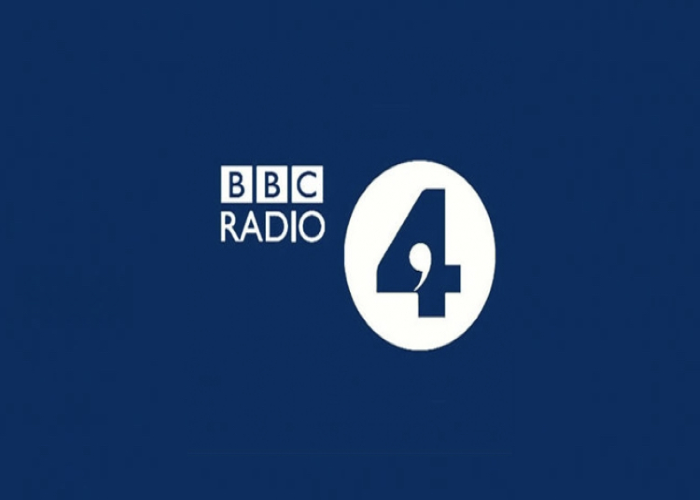
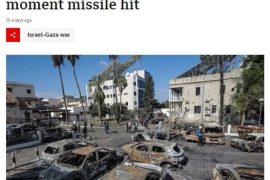
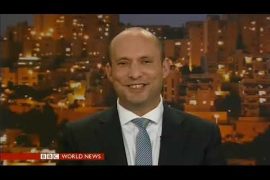
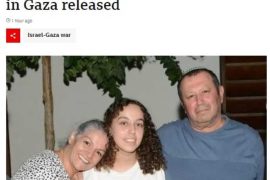

When it comes to Israel, BBC is not a news media. It is a propaganda outlet for Iran, Hamas and Hezbollah – and their Jerusalem office should be destroyed.